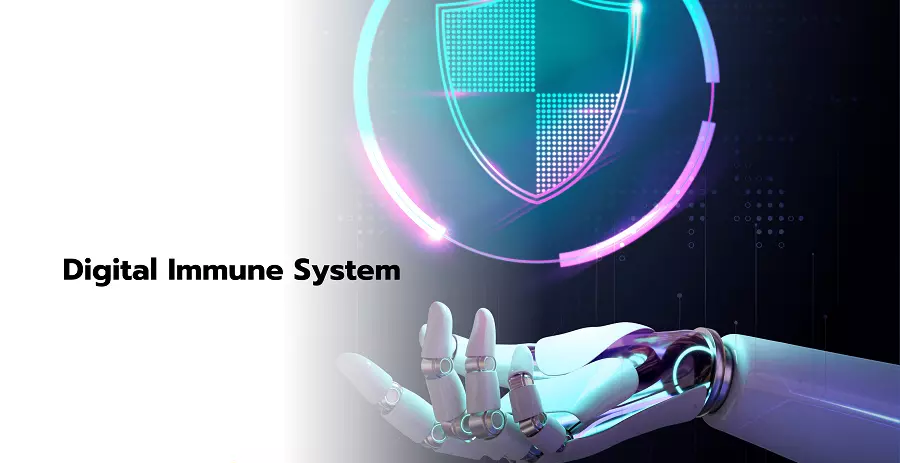Introduction: In today’s digital world, the software development industry faces new hurdles, particularly in the area of security. The proliferation of complex cyber attacks needs novel approaches to protecting digital assets. Enter the Digital Immune System (DIS), a strong framework meant to improve software systems’ resilience and security. This article delves into the notion of the digital immune system, its importance in the software development business, and the obstacles and solutions involved with its implementation.
Understanding the Digital Immune System
The digital immune system is an integrated set of practices and technologies designed to protect software applications from security vulnerabilities and threats. Much like the human immune system, a DIS continuously monitors, detects, and responds to potential threats, ensuring the integrity and reliability of digital environments. It combines advanced technologies such as artificial intelligence (AI), machine learning (ML), and automation to create a proactive and adaptive security infrastructure.
Challenges in Implementing a Digital Immune System
1. Complexity of Modern Software Environments
Modern software applications are often built on complex architectures, incorporating multiple layers of technology and third-party integrations. This complexity makes it challenging to implement a cohesive digital immune system that can effectively monitor and protect all components.
2. Evolving Cyber Threat Landscape
Cyber threats are continually evolving, with attackers employing sophisticated techniques to breach security defenses. Staying ahead of these threats requires continuous updates and improvements to the digital immune system, which can be resource-intensive and demanding.
3. Integration with Existing Systems
Integrating a digital immune system with existing software infrastructure poses significant challenges. Legacy systems, in particular, may not be compatible with modern security solutions, necessitating extensive modifications or replacements.
4. Resource Constraints
Developing and maintaining a digital immune system requires substantial investment in terms of time, money, and expertise. Many organizations, especially small and medium-sized enterprises (SMEs), may lack the necessary resources to implement and sustain such a system effectively.
Solutions to Overcome the Challenges
1. Embracing DevSecOps
DevSecOps, an extension of the DevOps culture, emphasizes integrating security practices into the software development lifecycle. By adopting DevSecOps, organizations can ensure that security is considered at every stage of development, thereby reducing the complexity of implementing a digital immune system.
2. Leveraging AI and ML
AI and ML technologies play a crucial role in enhancing the capabilities of digital immune systems. These technologies can analyze vast amounts of data to identify patterns and anomalies, enabling real-time threat detection and response. Investing in AI and ML-driven security solutions can help organizations stay ahead of evolving cyber threats.
3. Modular and Scalable Solutions
To address the challenge of integrating with existing systems, organizations should opt for modular and scalable digital immune systems. These solutions can be customized and expanded as needed, ensuring compatibility with various software environments and reducing the need for extensive modifications.
4. Collaboration and Knowledge Sharing
Collaboration and knowledge sharing among industry peers can significantly enhance the effectiveness of digital immune systems. By participating in security forums, consortiums, and information-sharing initiatives, organizations can stay informed about the latest threats and best practices, enabling them to continuously improve their security posture.
5. Investing in Training and Education
A well-trained workforce is essential for the successful implementation of a digital immune system. Organizations should invest in ongoing training and education programs to equip their employees with the necessary skills and knowledge to manage and maintain advanced security systems.
Conclusion
The digital immune system represents a crucial advancement in the quest to secure software applications against an ever-evolving threat landscape. While its implementation poses significant challenges, adopting a strategic approach that leverages modern technologies, best practices, and collaborative efforts can lead to robust and resilient digital environments. As the software development industry continues to evolve, the digital immune system will undoubtedly play a pivotal role in safeguarding the integrity and reliability of digital assets.
FAQs on Digital Immune System and Software Development Industry
1. What is a Digital Immune System (DIS)?
A Digital Immune System is a set of practices and technologies designed to continuously monitor, detect, and respond to security threats in software applications, ensuring their integrity and reliability.
2. Why is a Digital Immune System important in the software development industry?
A DIS is crucial because it helps protect software applications from evolving cyber threats, ensuring the security and stability of digital environments, which is essential for maintaining user trust and business continuity.
3. What are the main challenges in implementing a Digital Immune System?
The main challenges include the complexity of modern software environments, the evolving cyber threat landscape, integration with existing systems, and resource constraints such as time, money, and expertise.
4. How can AI and ML enhance a Digital Immune System?
AI and ML can analyze vast amounts of data to identify patterns and anomalies, enabling real-time threat detection and response, thereby improving the effectiveness and adaptability of a digital immune system.
5. What role does DevSecOps play in implementing a Digital Immune System?
DevSecOps integrates security practices into every stage of the software development lifecycle, reducing the complexity of implementing a DIS and ensuring that security is a continuous and integral part of the development process.


